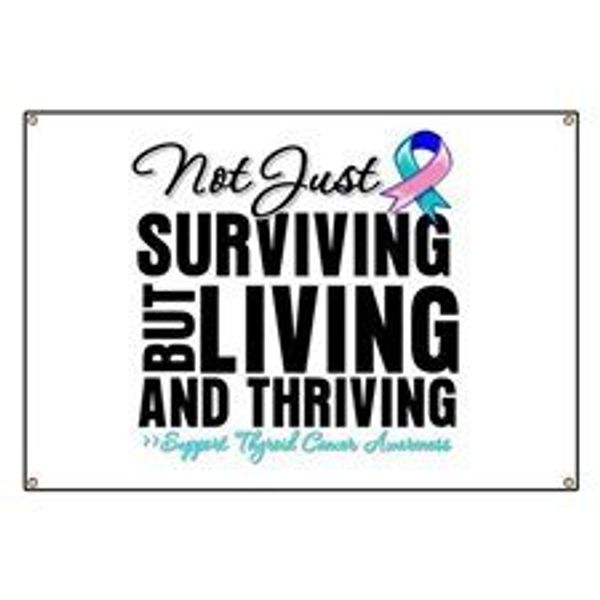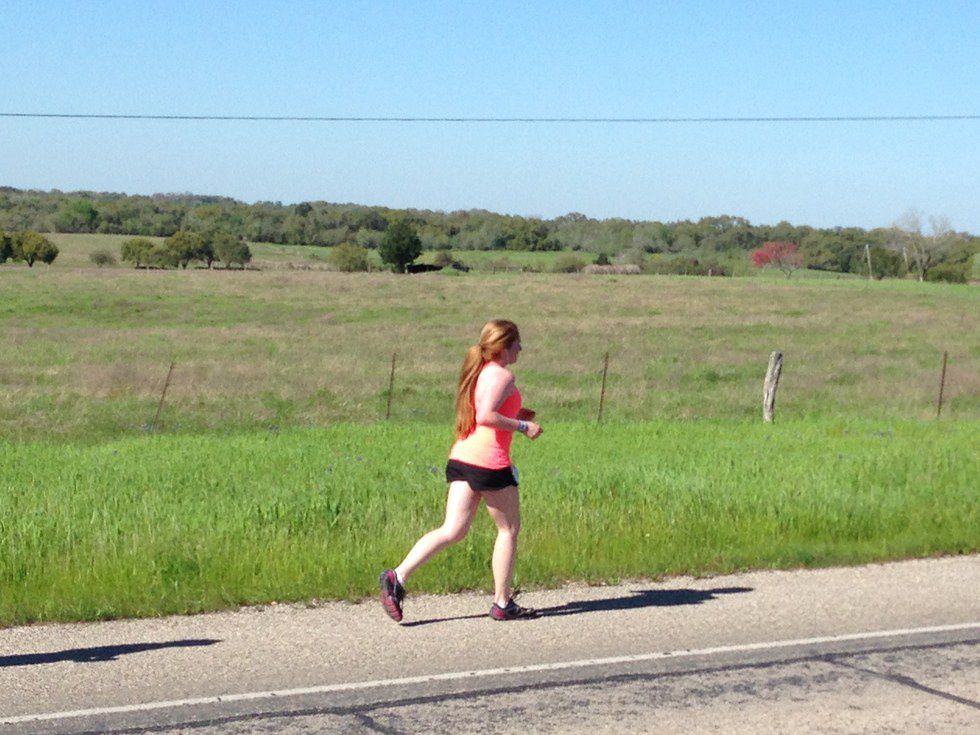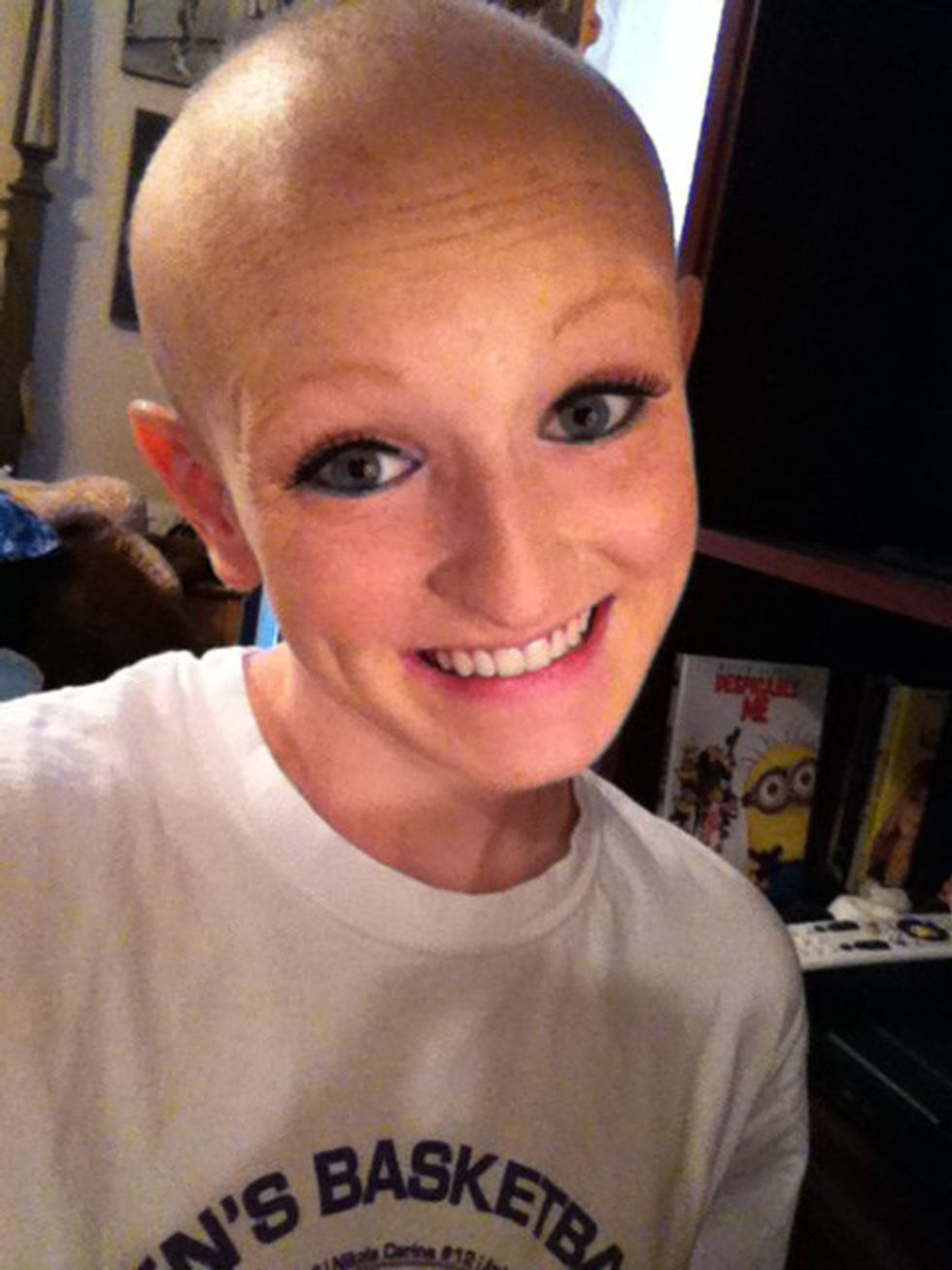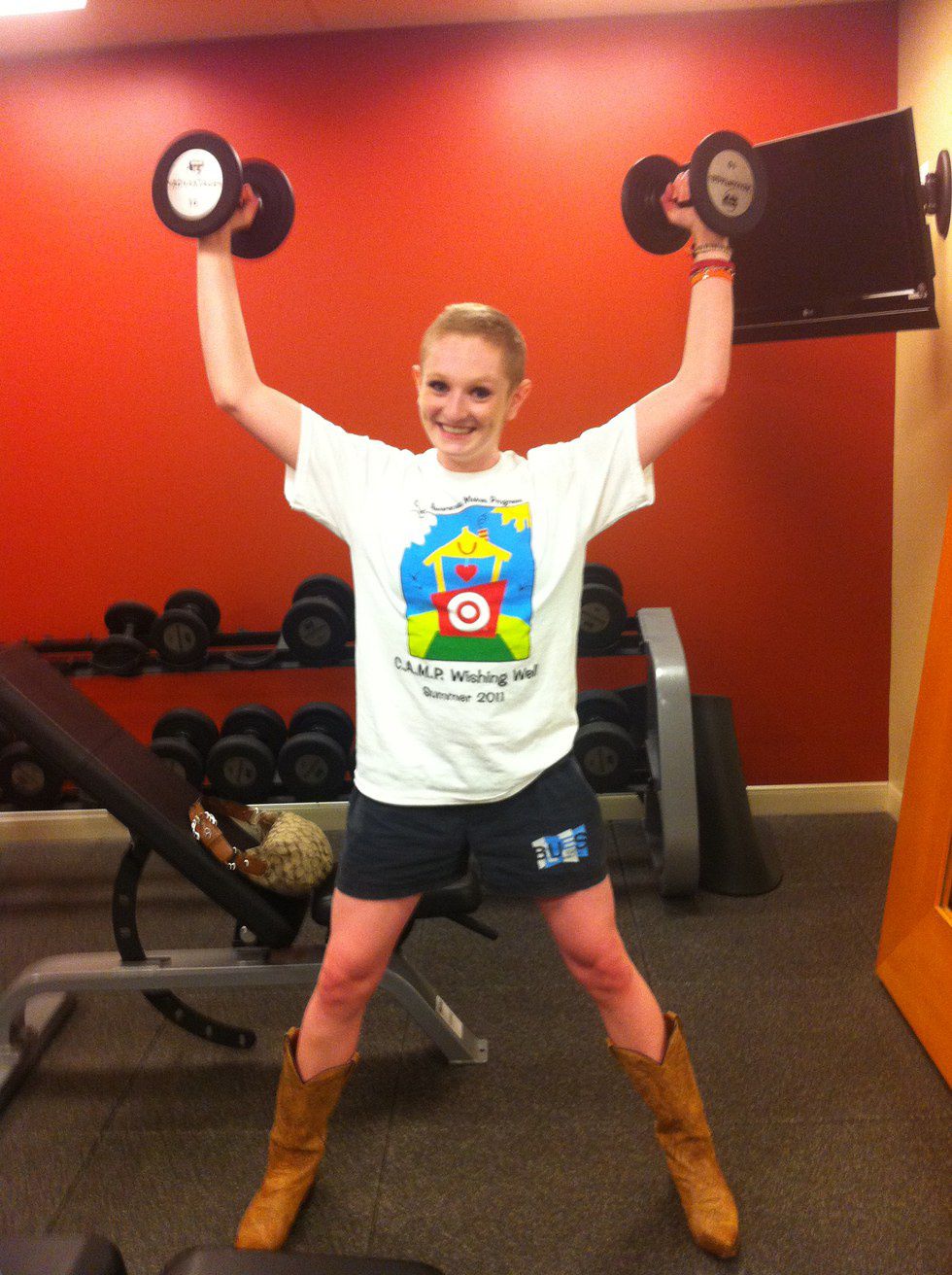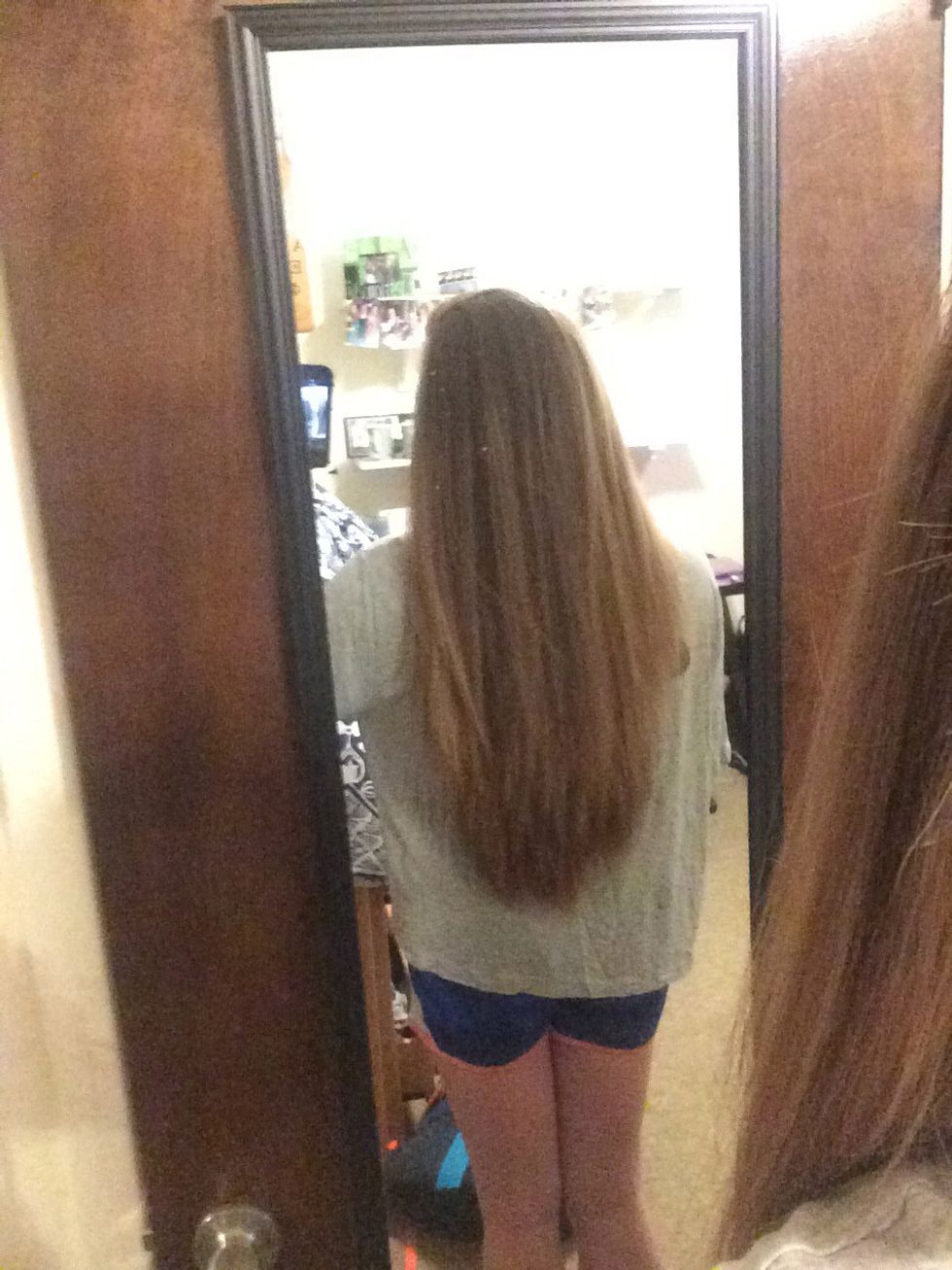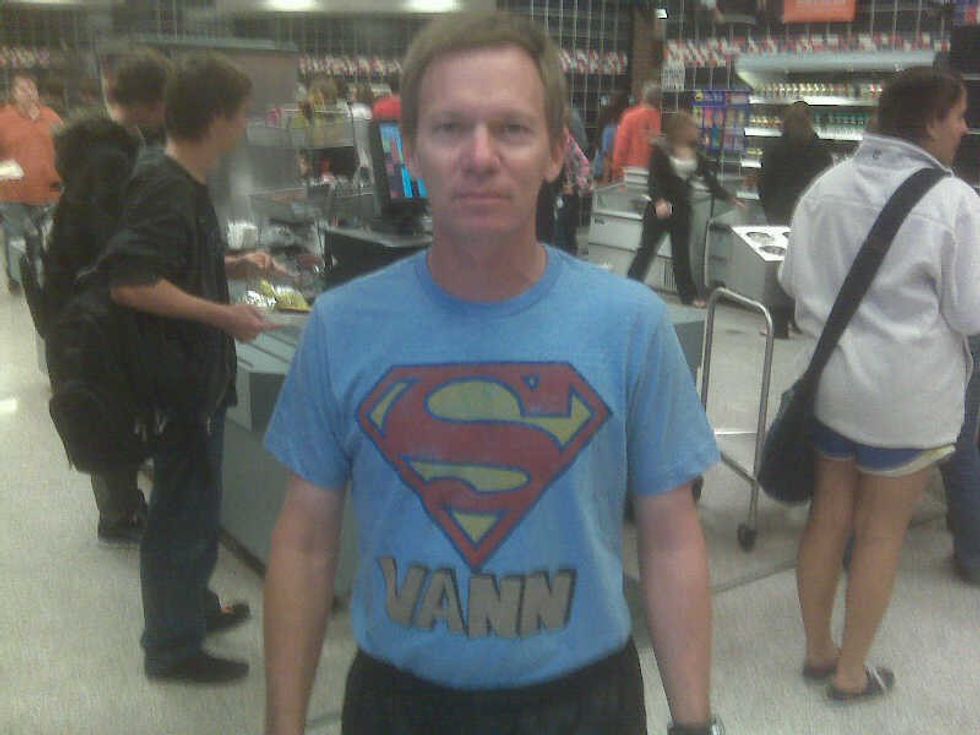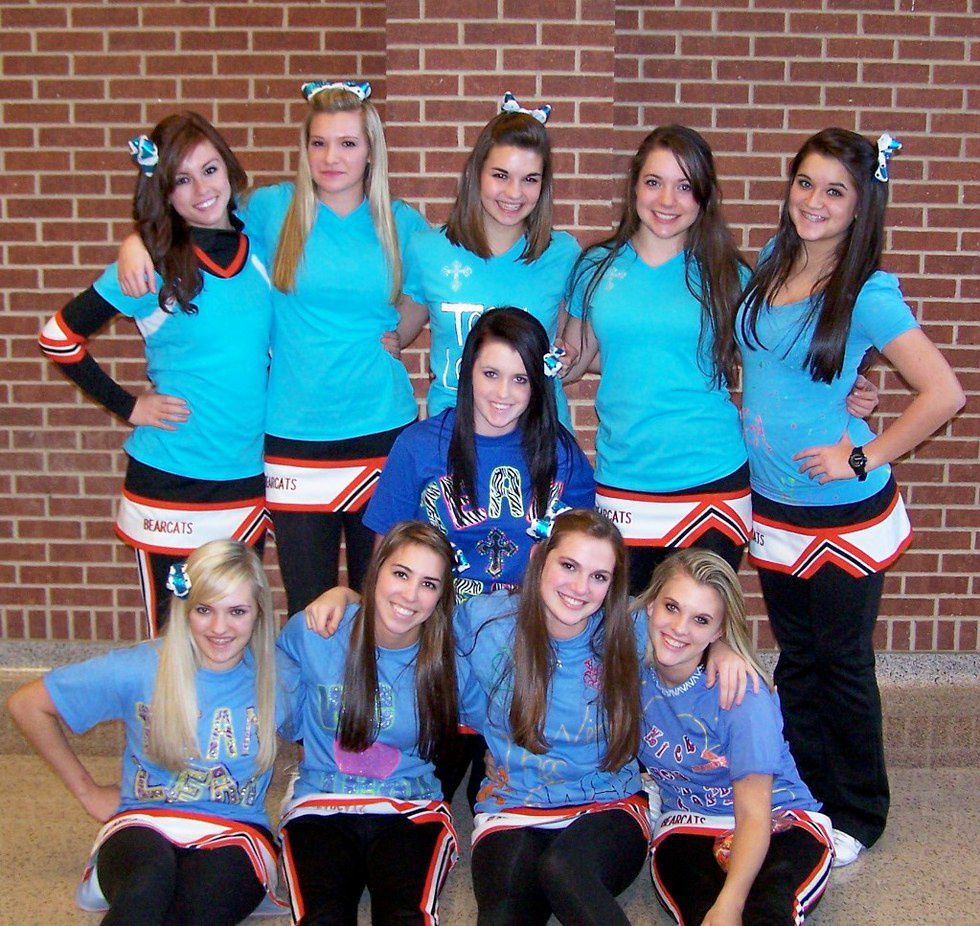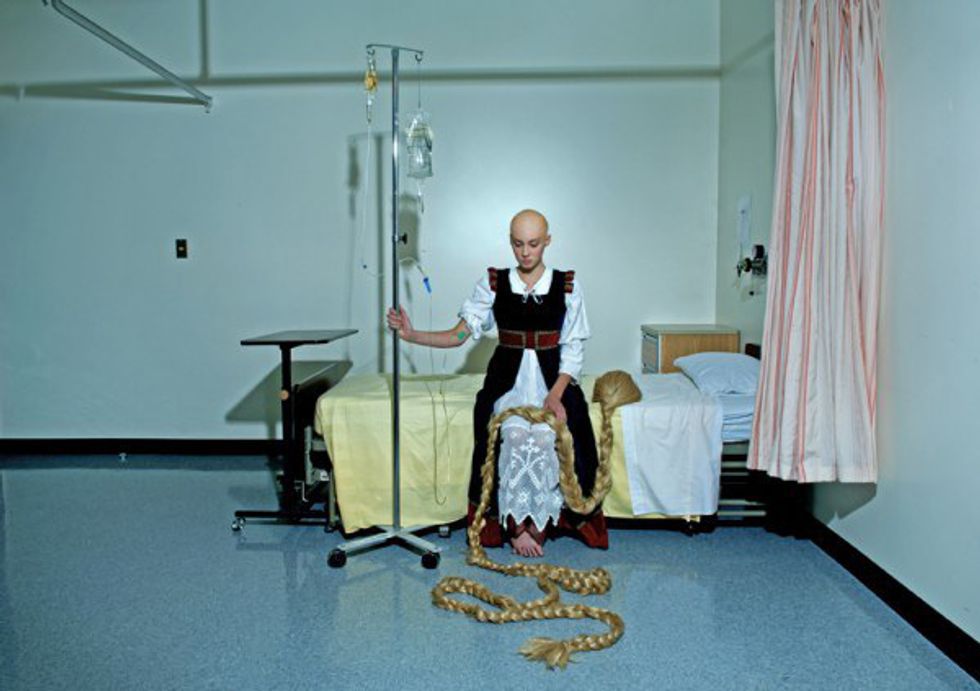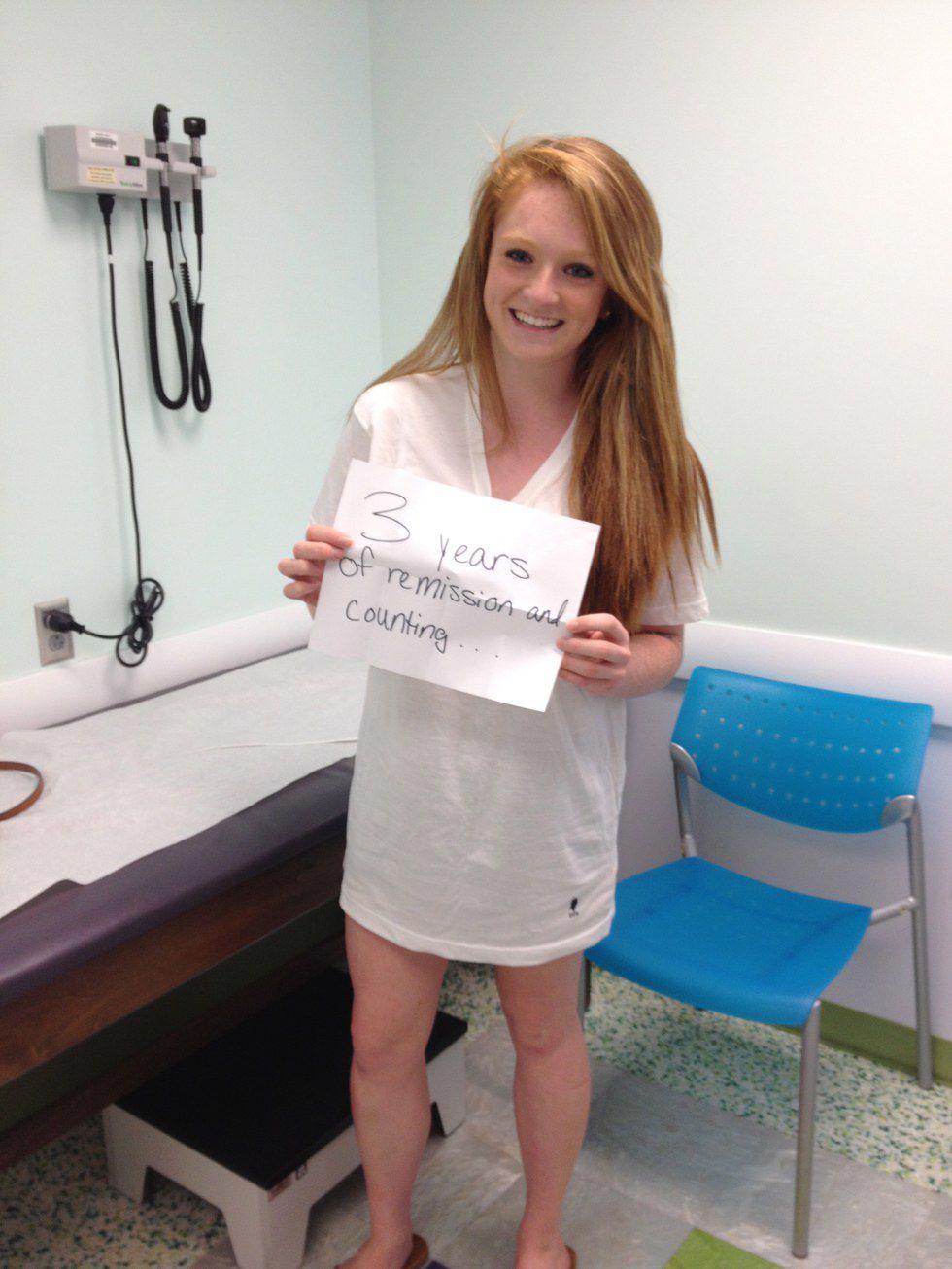At 15 years old, I didn't imagine a swollen bruise and loss of breath after a volleyball practice meant something life-altering. I remember sitting in a doctor's office on a November morning, watching as my doctor entered with my blood test results. It still gives me chills thinking about it. Sitting here, days before my four-year post-treatment checkup, makes me realize how much my life has changed since that day. It's taken four years for me to think of all the things I've learned from the experience, and I'm sure I still have more to learn. Now that I have a second chance at life, I have 12 things I always keep in mind:
1) I am LEAH VANN, not Leah Leukemia.
After I finished treatment, I lost sight of who I was as a person. I talked about my wigs, my nurses, my doctors, my treatment and what it was like to live in a hospital. For the past year, everyone had made memories and I had made nightmares. I posted pictures of my hair growth, anniversaries of final treatment, and whatever else made me feel accomplished and happy about myself. While my victory was glorious, the rest of the world was moving on and I wasn't. People pointed at me and said, "That's that girl who had cancer."
I was this fragile object walking the halls and everyone was afraid to get close to me. What I had experienced was an identity crisis. To this day, I can't Google my name without the words "cancer" or "leukemia" automatically showing in the search bar because of all the speeches and publications that have told my story. However, there's more to find: a Facebook profile without any pictures of my sophomore year of high school, two journalism profiles, Twitter, and even excerpts of articles from the Aledo Community News about my academic and athletic achievements.
2) Everything in life means so much more than it used to.
When I came back to high school, I was excited to see Cheez-Its in the lunch line and fruit cups with a lot of "good" grapes. The little things made me happy to be at school again and live a normal life. In college, I've struggled over my major and my future path because I want to make sure I am passionate about it. I despise spending time doing things that I hate because it takes away time from doing the things that I love. Every challenge I take and conquer, I want the world to know about. I ran my first 10k in college, and as a former sprinter and survivor, I never imagined myself a long-distance runner. This past year, I skipped Roundup weekend (the biggest party weekend of the year at UT) to run in the Texas Independence Relay: a weekend road-trip of 200 miles of running with a team of 11 people. I took the opportunity because I'd rather feel accomplished than hungover from crowded parties I'm not a fan of. Everyone told me I was missing out, but I couldn't think of a better way to spend my weekend.
3) Feeling sorry for myself won't get me anywhere.
A Russian woman from my synagogue came to me in the hospital once and said: "I lost my father and my mother in the same year. I came to the United States with little money to make a life for myself. People asked me how I managed to get through all of my life obstacles and this is what I did: I stopped feeling sorry for myself. Get up every day. Put on some makeup, even just a little blush. You'll look radiant. Fake a smile and act like everything is fine. Enjoy the people around you because life is too short."
4) Crying is a sign of strength, not weakness.
I never cried in front of people when they visited me. People told me I was strong because I was so happy and normal when they visited. The truth is, my happiness from seeing people from outside the hospital outweighed my sadness from being sick. However, behind closed doors, I cried. I've come to the conclusion that strong people can cry too. I didn't cry because I felt sorry for myself. I cried because I missed my friends, volleyball, track and everything I was passionate about. Strong people are the opposite of emotionless; they put tremendous emotions behind everything they love and hate.
5) YOLO (you only live once).
Drake was right. You only live once. So why not take risks? Many of my other cancer survivor friends are risk-takers. I see pictures of them skydiving and backpacking through foreign countries. After all, they survived cancer, so they feel invincible. I take "YOLO" in a different perspective because I'm a wimp when it comes to skydiving. This is my justification for taking random classes that don't count towards my major, going to parties where I barely know people, skiing down a black diamond, taking crazy running road trips, eating dessert every chance I get, singing in front of a crowd of people I barely know and spending three weeks in Israel with a group of people I've never met.
6) I don't spend time on things or people I don't enjoy.
Aside from sorority recruitment and organic chemistry, if I don't have to participate, I won't. I'm not giving into peer pressure to go to Sixth Street on a night I feel like staying in. I'm not going to ride a scary roller coaster because I've tried them and hated them. If someone brings negativity into my life, I don't hang out with them. I don't lash out at them, but I also don't afford them the opportunity to be close to me. This is different than holding grudges. Holding a grudge means you are constantly spending time being angry or upset at someone. This is simply avoiding people or things that make me feel angry or upset. Life is too short to be surrounded by negative people.
7) Fitness is EXTREMELY important.
Since I had grown up an athlete, when the doctors first tried to syringe a sample of my bone marrow for testing, they couldn't get the needle through my strong bones. They told my mom I had the strongest bones they had ever seen. I truly believe my fitness level helped me survive. I walked every day no matter how anemic I felt. I knew it would make me feel better and prevent pneumonia from laying in bed too long. I was the only cancer patient who went to physical therapy because I missed being an athlete and wanted to keep what little strength I could for my recovery after treatment. After I finished treatment, I went to the gym on weekends in addition to my volleyball workouts to increase my strength and endurance for track season. Not only does working out release endorphins that make you feel happy, but it also it decreases the risk of health problems later in life.
8) I'm never cutting my hair more than a simple trim and I enjoy straightening it.
Hair takes WAY too long to grow. My friends said my hair grew fast, but they hadn't lived through the wigs, hair extensions and awkward hair length phases I had. I drive my hairdressers crazy when I tell them I don't want them to trim more than half an inch or thin it. No, I'm never donating my hair to give back. Call me selfish, but I LOVE my hair. Straightening my hair takes an hour, so why do I bother? Strange enough, I missed doing my hair during treatment. Straightening my hair is an hour of time I can listen to music and take time to think. It's like a meditation to me, but I also wear my hair natural much more than I used to before I lost my hair because it is beautiful the way it is.
9) I enjoy my own company.
Before I was diagnosed and during the rest of high school afterward, I worried about not having a boyfriend or a prom date, and having the largest friend-group possible. I was concerned when I didn't have plans for the weekends. Sometimes, I even felt lonely at a table full of friends. After a while, I realized I was independent, not lonely. I found that I purposely separated myself from crowds of people at times because I didn't care for the same things they did. I cherish the days I'm alone in a coffee shop, writing and listening to music. I like to work out by myself at my own pace. I like watching Netflix in bed by myself. I like walking to class by myself with just my music.
10) Living in a small town community is the best situation possible.
I wouldn't have graduated in four years if it weren't for the teachers who visited me in the hospital, tutoring me in Pre-AP Algebra II (Mrs. Mclellan), Pre-AP Chemistry (Mr. Madey), and Pre-AP Spanish (Mr. Roach). I also had a home-bound teacher, Tracy Cottrell, who brought the rest of my coursework and sat by my side cheering me on as I worked. My Pre-AP World History teacher, Coach Wright, visited me weekly, or more, just to talk about life and introduce me to his nephew who had cancer. Coach Wright gave out my phone number to his entire class and had them all text me nice messages on occasion. The principal of my high school, my volleyball coaches and many other educators came to visit me too.
The captain of the cheer squad asked me my favorite color one day, and the next day I saw pictures of people all over the school wearing it. I even heard on the radio cast from the playoff football game: "Everyone out here tonight is wearing light blue for Leah Vann, a girl at Aledo High School who was just diagnosed with Leukemia. Wishing you the best, Leah!"
My community rallied around me in unexpected ways. People I barely knew visited me and brought me food and gifts. I was hardly left alone. I can't imagine going through what I went through anywhere else.
11) Life is WAY TOO DANG SHORT.
I made this realization when I thought I would lose my life the day of my diagnosis, however, it became even more real as time wore on. I went to St. Jude Children's Research Hospital, where thousands of the sickest children from all over the globe are sent for last-resort treatments. There were walls of names of children who had passed away. I sat next to a girl in a clinic, my age, whose skin cancer had been deemed "incurable." My mother met a 13-year-old boy discussing his funeral plans in the laundry room with his mom. I went home and saw Eric, my classmate, whose cancer had relapsed for the worse. Eric passed away at 18 my freshman year of college. It was strange to think a boy I had visited, talked to and gone to school with passed away before he could go to college and really discover himself.
12) While Cancer doesn't define me, it has changed my life forever.
I've decreased my posts, but not eliminated them. It makes me more grateful for the life I live every day. When things get tough, I know they could be worse. I'm not going to tell my story daily, but I'm going to let it impact the way I live my life.


